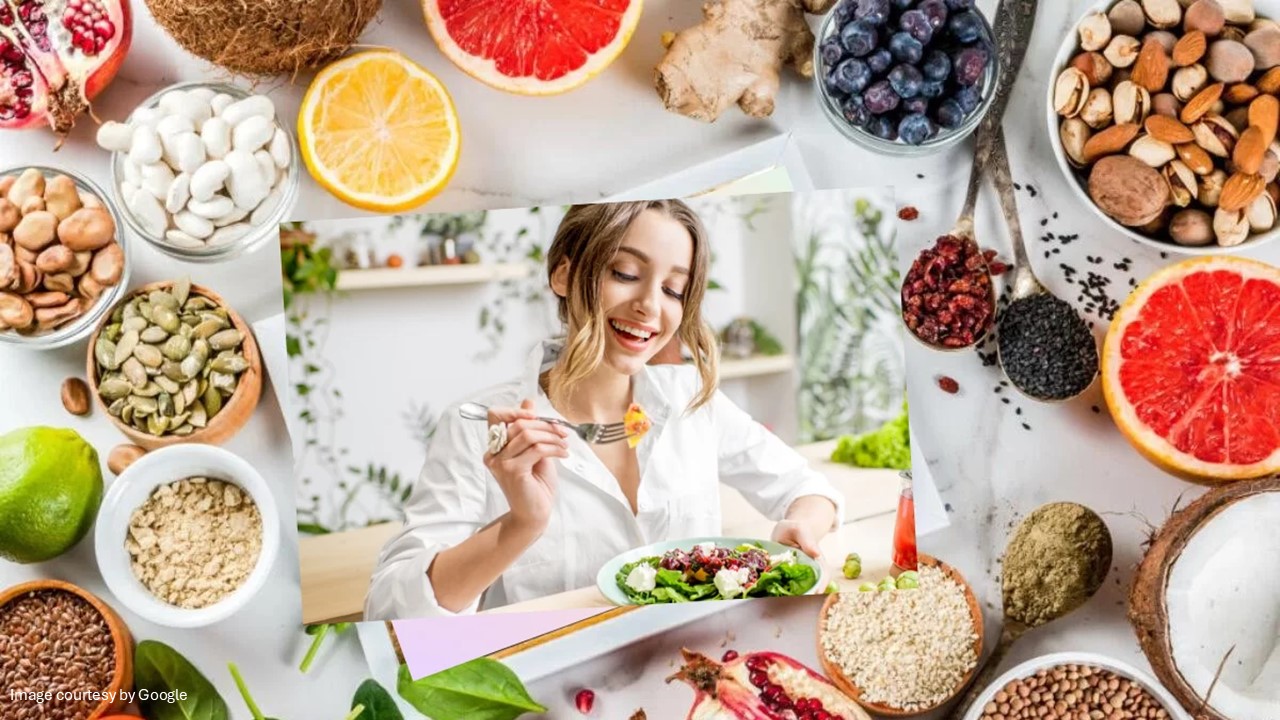Nutrition is a crucial element of a healthy life, as it supports body growth and repair. Nutrient processing involves how food affects the body and how different nutrients play unique roles to maintain health. Good nutrients boost energy and focus, strengthen the immune system, support mental health, help maintain a healthy weight, and reduce the risk of chronic illnesses.
Nutrition needs vary from person to person based on various factors such as gender, age, current health issues, and weather. Ideal daily nutrition and proportions change over time. For instance, teenagers require different nutrients than older adults. Similarly, daily nutritional requirements for women are different from those of men, children, or older adults.
This page will shed light on women nutrition, nutrition needs for women in their 20s, 30s, 40s, and beyond. Consider the nutrition guide given below for general reference. Nutrition plans vary from person to person based on current health; therefore, consulting a doctor or a nutritionist is advisable.
Women nutrition
Nutritional needs for women health evolve throughout life due to changes in hormones, reproductive status, metabolism, bone health, and other risk factors involving chronic disease. These changes emphasize shifting from building a strong foundation in their 20s to maintaining bone health and managing weight in later decades. Key nutrients across all ages include protein, calcium, iron, and antioxidants, but the specific focus and amounts vary with age and lifestyle.
What to eat at a specific age?
Age is just a number, but nutrition is power. Maintaining balance between age and nutrition helps women throughout their lives. What we put on our plate today impacts how we feel, not just now but also in the years to come. Adjusting the right amount of nutrients isn’t just essential for sustained energy and immunity but for graceful ageing as well.
Women’s bodies undergo incredible changes throughout their lives, and so do their nutritional needs. What a woman eats makes a significant difference during hormonal fluctuations in her 20s, as well as her bone health and energy levels in her 30s and 40s. Making a change in her nutrition guidelines during these phases is important for her overall health. Consulting a nutritionist is a good idea to identify a woman’s ideal daily nutrition needs.
The breakdown given below shares key nutrition needs for women in their 20s, 30s, 40s, and beyond:

Nutrient needs in her 20s
The time of her 20s builds a strong foundation mentally and physically. Her body develops in many ways; therefore prioritizing nutrients is important. Top nutrients to support women health during this period include:
-
- Iron – Food rich in iron supports energy, mood and oxygen transport. Examples include spinach, quinoa, broccoli, lentils, eggs, pumpkin seeds, and dried fruits.
- Omega-3 fatty acids – They support brain health and control inflammation.
Examples include flaxseeds, chia seeds and walnuts.
-
- Calcium & vitamin D – Support building bone mass and bone strength.
Examples include fortified plant milk, dairy, tofu, chia seeds, and almonds.
-
- Magnesium – It eases stress and symptoms of PMS (premenstrual syndrome).
Examples include whole grains, nuts, and seeds.
-
- Vitamin B9 (Folate) – Necessary for cell repair and fertility
Examples include legumes, citrus fruits, and dark leafy greens.
For a nutrient-dense kick-start day, try a smoothie of oats, chia seeds, and nut butter for breakfast.
Tips for 20s:
-
- Don’t skip meals — fuel your metabolism.
- Limit ultra-processed foods.
- Stay hydrated.
- Avoid drinking and smoking.
Nutrient needs in her 30s
Her 30s bring new responsibilities of family, career, mental load and possible pregnancy phase. At this time, her body needs more support for cellular protection, hormonal balance and energy. Top nutrients to support women health in their 30s include:
-
- Iron – Remains crucial, especially during menstruation.
- Protein – The right intake of protein supports lean muscle and strength. Legumes, oats, Greek yogurt, and seeds are some of the common protein options.
- Vitamins A, C and E (Antioxidants) – Slows down cellular aging. It is found in carrots, berries, citrus fruits, and bell peppers.
- Vitamins B – Support metabolism and mood. It is found in whole grains, nutritional yeast, dairy products, and eggs.
- Choline – Supports the nervous system and brain health. Eggs, quinoa, legumes and broccoli are common examples, while choline is found easily.
For a boost of energy, try adding a muesli mix with dried fruits and seeds to your breakfast for a better source of fibre, antioxidants, and proteins.
Tips for 30s:
-
- Don’t skip on your health meal preparation; stay on track even during busy weeks.
- Include a balance of complex carbs, protein, and healthy fats in every meal.

Nutrient needs in her 40s
At this age, hormonal changes occur in most due to the onset of perimenopause. This is when your focus should shift to metabolism, heart health, bone health, and inflammation reduction. Essential women nutrition at this age should include:
-
- Calcium and Vitamin D to prevent fractures and bone loss
- Vitamin C and proteins (collagen supporting nutrients)
- Fiber to keep smooth digestion and manage weight
- Potassium to reduce bloating and support heart health
- Zinc and Selenium to boost immunity and repair skin cells. This can be found in sunflower seeds, Brazil nuts and legumes.
- Phytoestrogens, which help ease hormonal symptoms. Phytoestrogens are found in soy, flaxseeds, and sesame seeds.
To crush your cravings while boosting nutrition, try a protein-rich seed mixture or date bites enriched with Selenium and zinc.
Tips for 40s:
-
- Watch out for the portion sizes — metabolism naturally slows.
- Limit alcohol and sugar intake.
- Exercise daily to support bone and muscle health.
Nutrient needs in her 50s for healthy aging
-
- Intake of the right amount of calcium & vitamin D becomes critical for preventing osteoporosis.
- Protein helps prevent age-related muscle loss. Aim to add protein to your everyday meals, such as beans, fish, and eggs.
- B12 helps prevent health issues associated with ageing. Include Meat, fish, fortified cereals or supplements and eggs in your diet.
- Take fiber to improve digestion and maintain healthy cholesterol levels.
- Potassium protects heart health and muscle movements. Include bananas, beans and sweet potatoes in your diet.
- Omega-3s for brain and heart health
Tips for 50s:
-
- To stay active, join strength training and weight-bearing exercises.
- Take multivitamins specially tailored for 50+. Consult your doctor to determine the best multivitamin pack for you.
- Keep yourself hydrated and prioritize it because thirst signals diminish with age.
Final thoughts:
Let food be more than fuel, let it be your foundation, your medicine, and your self-care ritual.
All women deserve to feel strong, energized, and radiant at every stage of their lives. From your 20s to 50s and beyond, each decade requires your unique attention physically, emotionally and hormonally. A well-balanced diet of the daily recommended nutrition contributes to overall health. So, focus on nutrient-dense foods which enable you to feel healthy from the inside out. And remember that there is no perfect diet that fits everyone’s requirements.
Nutrient-focused living doesn’t mean restrictions; it’s about achieving better health at every age. Boost women nutrition-oriented products to overcome vitamin deficiency. The core nutrition values for women health apply to all ages. Tailor your intake at each life stage to maintain your energy, vitality, and long-term wellness.



